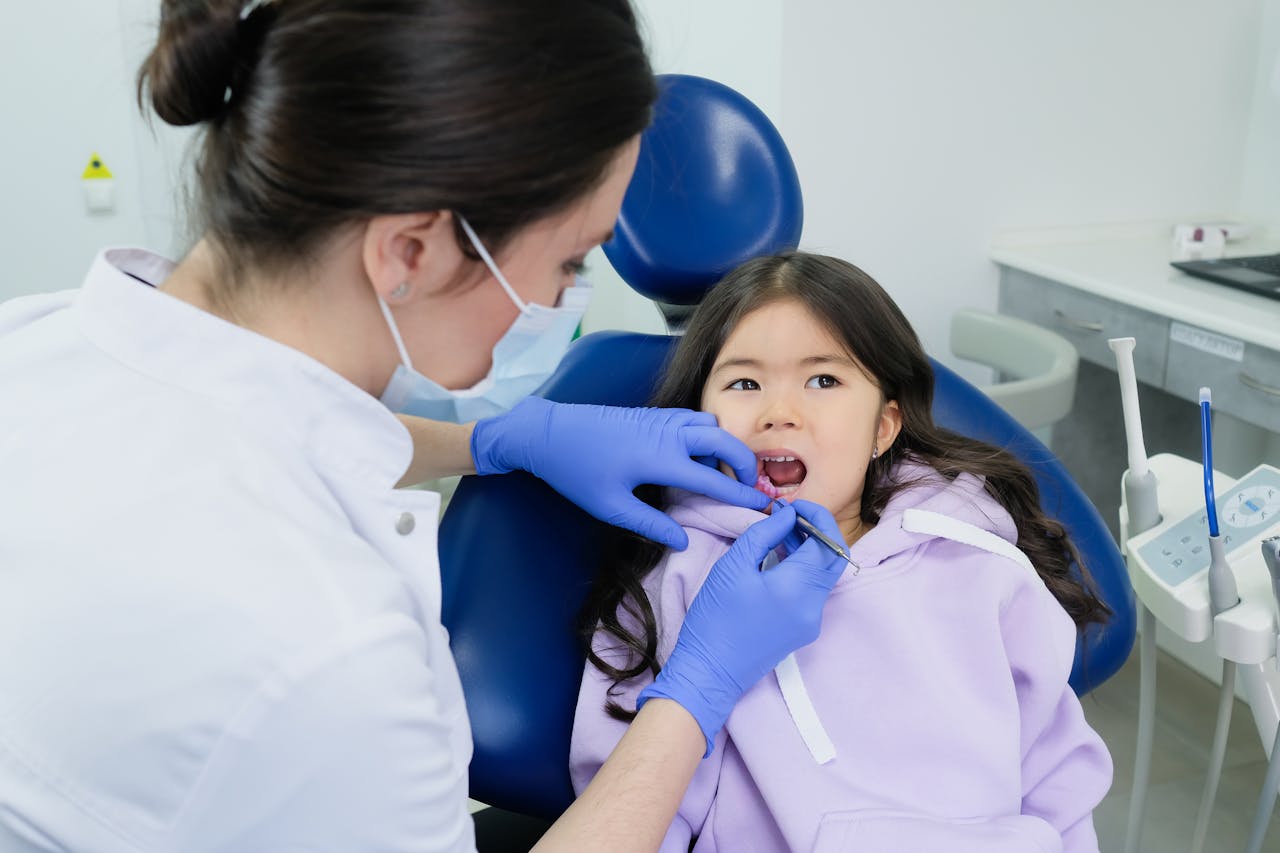Bad breath, frequently known as halitosis, is commonly affecting children of all ages. Among the several things that could lead to it include bad oral hygiene, some meals, or underlying medical illnesses. Confidence and social contact for your child depend on addressing foul breath. This page offers five doable suggestions to enable your youngster to control and avoid foul breath properly.
Promote Proper Dental Hygiene
Developing a regular oral hygiene schedule is among the best ways to fight bad breath. Children should also be instructed in daily flossing to clean between their teeth of food particles and plaque. Parents should watch younger youngsters to guarantee they are utilizing the correct technique. Frequent brushing and flossing help to greatly lower the mouth’s bacterial count, which fuels foul breath. Instructing youngsters on the value of excellent dental hygiene will enable them to acquire lifetime habits. Apart from flossing and brushing, parents should urge their kids to clean their tongues since germs could gather there and aggravate foul breath. Additionally helping to freshen breath and offer an extra layer of defense against odor-causing bacteria is using a mouthwash or rinse meant for youngsters.
Stay Hydrated
Maintaining freshness of breath depends on being hydrated. Children who drink too little water may produce less saliva, which causes dry mouth and poor breath. Encourage your child to sip lots of water all during the day, particularly following meals and snacks. Remind your youngster to drink if they participate in sports or other activities routinely. Apart from water, think about presenting nutritious snacks with lots of water content, such as fruits and vegetables. Maintaining your child’s hydration will help to lower foul breath risk and encourage saliva generation. Maintaining fresh breath also depends on restricting sugary beverages, which can aggravate dry mouth and encourage bacterial development. Teaching young children the value of water not only benefits dental health but also general well-being.
Track Eating Habits
Diet can have a big impact on your child’s breathing. Some dishes, including spices, garlic, and onions, might produce undesired smells. Moreover aggravating foul breath are sweet snacks and drinks as well as bacterial growth in the mouth. Cut back on your sweet candy intake as well, and advocate healthy snack options. Children will be better able to choose meals sensibly if they can see how diet and dental health are connected. Further reducing the possibility of bad breath, you can motivate your child to eat crunchy foods that help saliva generation stimulation and tooth cleaning. Promoting attentive eating can help them not just with freshness of breath but also with general oral hygiene.
Time Plan Frequent Dental Inspections
Maintaining your child’s oral health and tackling any problems causing foul breath depend on regular dentist visits. The dentist may evaluate your child’s oral condition, offer professional cleanings, and spot any underlying problems, including gum disease or cavities that might be generating bad breath during these appointments. By establishing a dentist appointment schedule, you may assist in guaranteeing that your child’s teeth and gums stay healthy, therefore lowering their halitosis risk. The dentist can also advise on appropriate oral hygiene practices and suggest products to aid even more in avoiding foul breath. Frequently visiting a dentist in Kearny Mesa or wherever you live also enables early identification of any possible oral health issues, so guaranteeing quick intervention and improved long-term results for the breath and general dental condition of your child.
Share Information on the Value of Oral Health
Teaching your child the value of oral health will assist them in grasping the causes behind proper dental hygiene habits. Talk about how foul breath and other oral problems could result from a mouthful of germs. To help the material be relevant, use age-appropriate language and models. Motivational your child to probe questions and voice any worries about their dental situation. Including dental care as a pleasant and interesting subject helps to promote a good attitude toward oral hygiene. Children who grasp the need to avoid bad breath are more likely to develop lifetime-lasting good behaviors. Games, tales, or movies illustrating the link between oral cleanliness and fresh breath might also be included. Children who know the “why” of brushing and flossing can be more driven to take responsibility for their dental health and include it in their daily schedule.
Conclusion
Through good oral hygiene, hydration, dietary choices, frequent dentist visits, and oral health education, children can control and avoid bad breath. These suggestions will enable parents to help their kids keep fresh breaths and advance general dental health. By acting early in dental care, your child’s confident smile will be guaranteed and the chance of bad breath will be much less.





